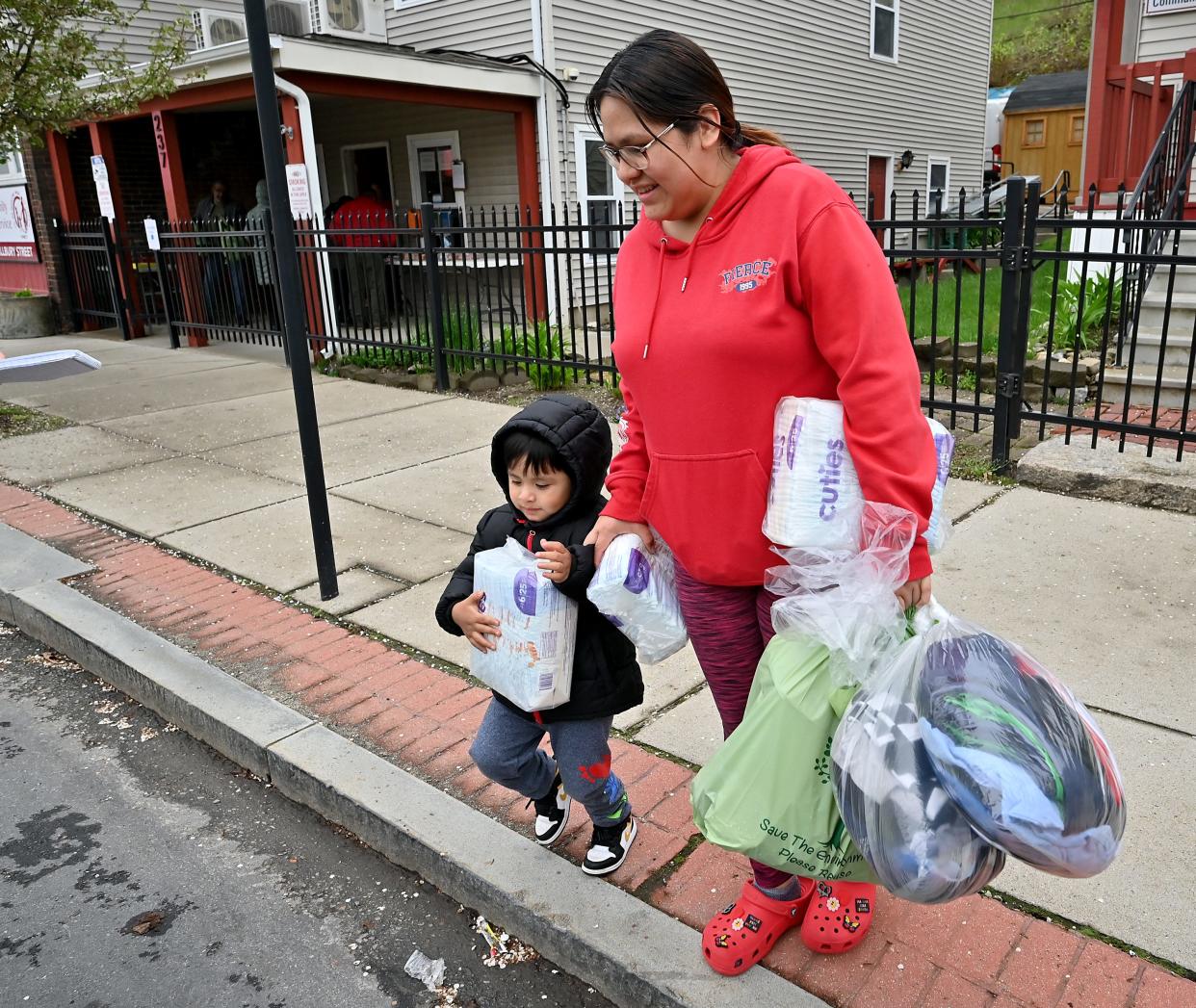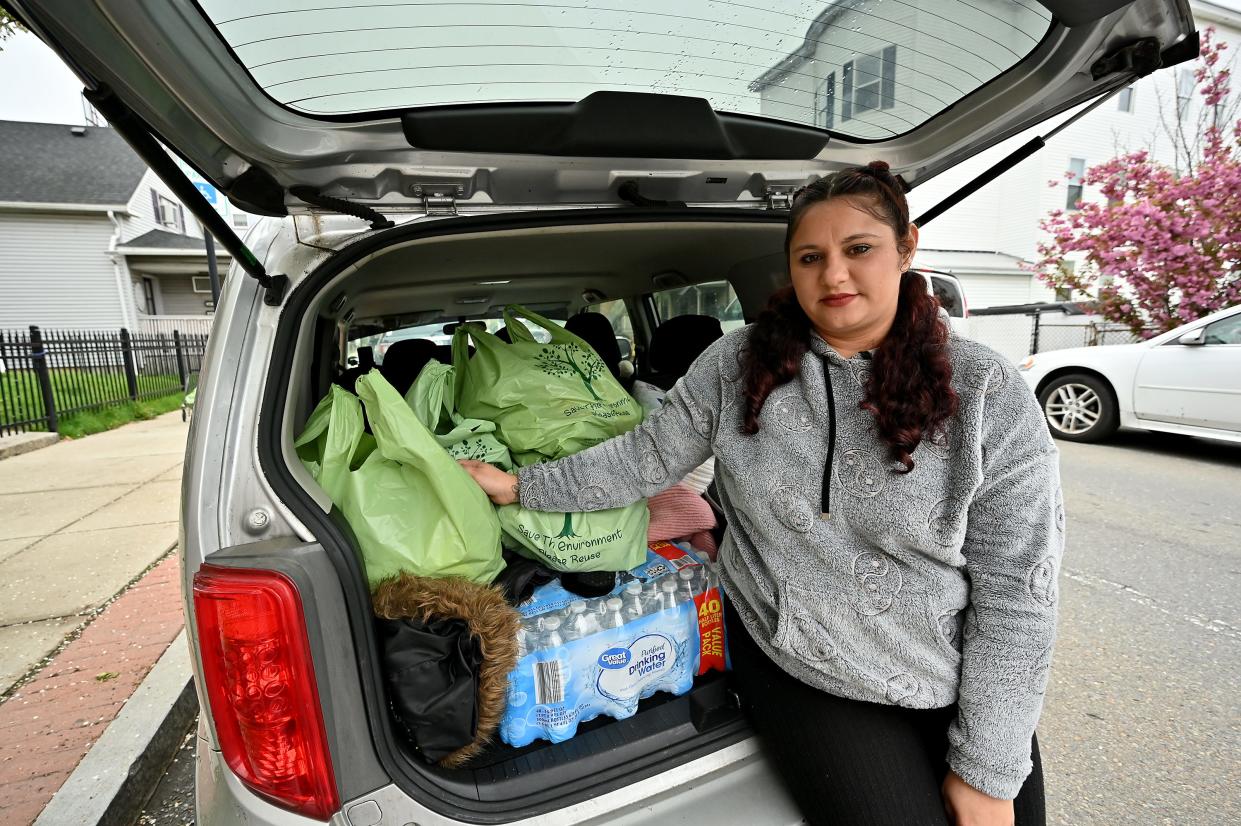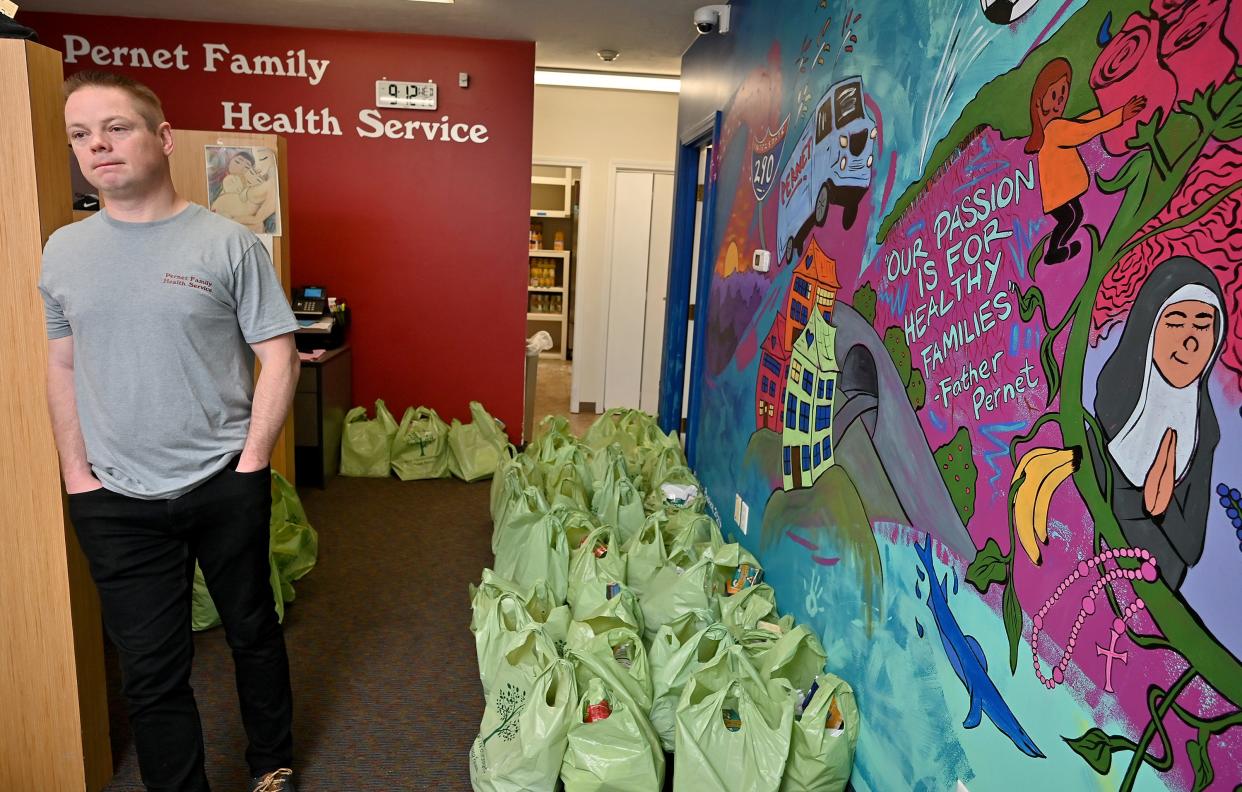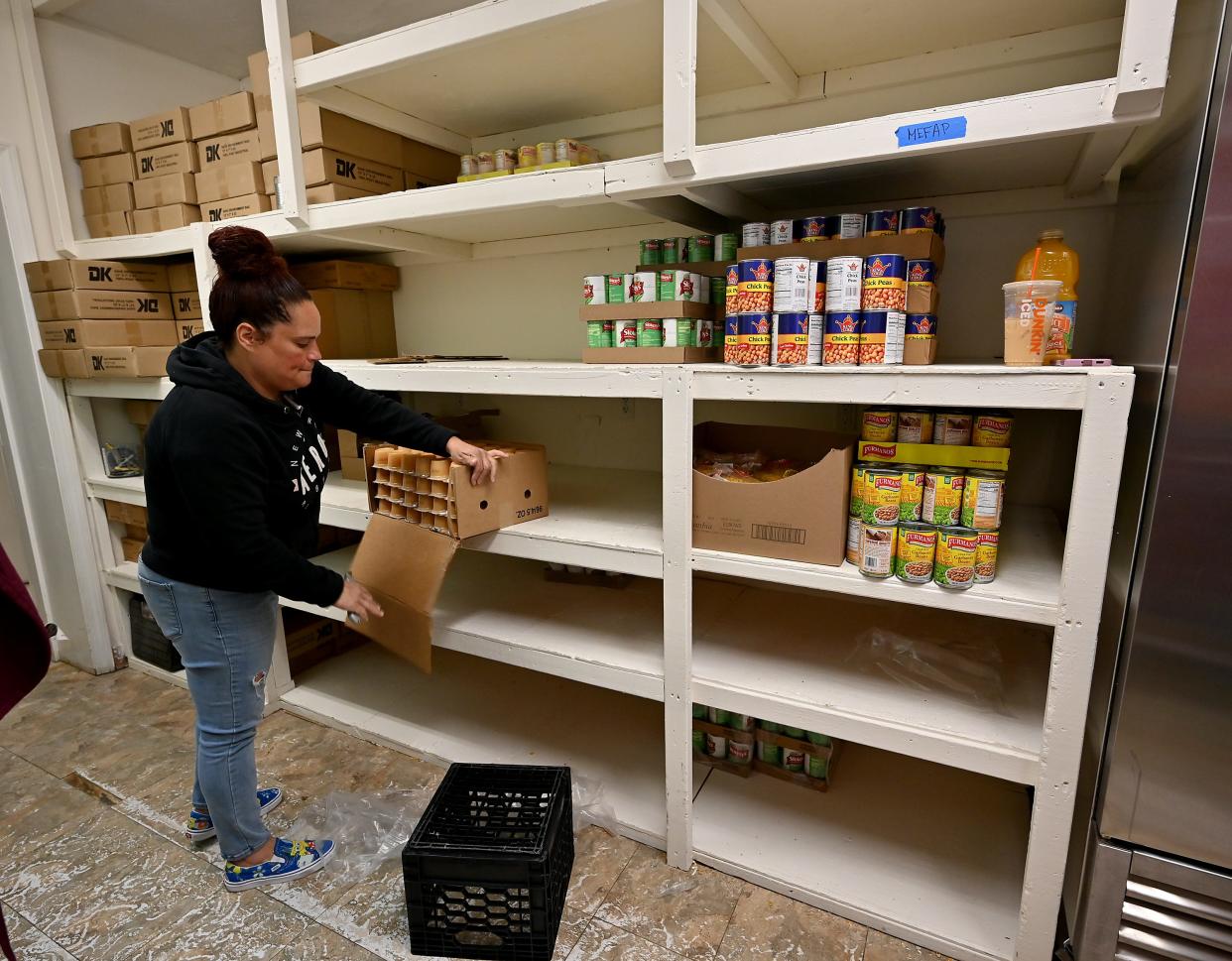Food assistance: Demand at food pantries spikes as rents increase and wages do not

WORCESTER – The early bird gets the worm.
That might have been what Maria Chuqui was thinking when she dropped by a food pantry Wednesday morning at Pernet Family Health Service in Worcester.
Chuqui came with her 3-year-old son, Andrew, and it’s a good thing she arrived soon after doors opened at 9 a.m. because it’s first come, first served.
A number of bags stuffed with food that lined Pernet’s lobby were already gone, scooped up by people who know to come early so they can get what they need. It’s a sign that demand for food assistance is climbing rapidly in Worcester.
Numbers show demand on the rise
“We’ve seen an increase in need,” said Joel Wallen, Pernet’s associate executive director. A 33% increase at Pernet, as the nonprofit's pantry expects to serve approximately 16,000 people from July 1, 2023, to June 30, 2024, compared to 12,000 served between July 1, 2022 to June 30, 2023. Wallen explained the numbers are extrapolated from a smaller number that leave the pantry with a food supply that could last for weeks or a month that feeds an entire family.
An influx of immigrants from Haiti, Brazil and countries in the Middle East is contributing to a higher demand at Pernet. Mixed with the pantry’s regular customers, there’s a run on food and other items. Many left Wednesday with packages of diapers, a godsend since prices have spiked at local markets.

Challenge is county-wide
Increased demand for food assistance isn’t relegated to Pernet and Worcester. It’s a phenomenon throughout Worcester County and Jean McMurray, chief executive officer at the Worcester County Food Bank, has the data to prove it.
The organization collects donated food and distributes its supply to 119 agencies in Worcester County, most of them food pantries, including the one operated by Pernet.
McMurray provided sobering figures. One is a 32% jump in the number of households served by the agencies that partner with the food bank. Those agencies served 205,565 households from July 1, 2023, through the end of March, compared to 155,851 households in the nine-month period from July 1, 2022 to March 31, 2023.
The same percentage increase (32%) applies to the number of people served by the agencies — 594,005 from July 1, 2023, through the end of March, compared to 451,602 from July 1, 2022, to March 31, 2023.
Why the spike in demand?
A combination of factors explains why more families need help filling their refrigerators with essential items, said McMurray.
Emergency financial assistance provided by the federal government during the COVID-19 pandemic ended or was drastically cut.
A major punch to the gut is cuts to the federal Supplemental Nutrition Assistance Program, known as SNAP, that helps low-income families buy groceries. The monthly loss in SNAP benefits totals more than $12 million, affecting 79,000 households, according to McMurray.
Massachusetts stepped in to extend SNAP benefits for three months, but only at 40% of the federal government’s benefit level. Those payments ended in June, according to McMurray.

SNAP benefits can be used to buy fruits and vegetables grown at local farms through the Massachusetts Healthy Incentives Program. Based on a family’s size, an electronic benefits transfer card can buy up to $80 monthly of fresh fruits and veggies from participating farms.
Amanda Barker is the owner and operator of Cotyledon Farm in Leicester that participates in the incentives program. She sees a few challenges in the program including some SNAP families don’t know it exists. Another is many SNAP families don’t have access to a car or reliable public transportation to get to the farms.
Inflation/supermarket prices/housing expenses
Inflation, which sits above 3%, remains a factor and it’s manifested at many supermarkets where food prices have soared. The housing crisis is also in play, with the cost of rents and home ownership beyond the financial reach of many residents.
McMurray highlighted the challenge, saying when she moved to Worcester in 2005, she rented a floor in a three-decker for $500 monthly. That’s an amount likely to never be seen again as Worcester has the third most-expensive rental market in the country, according to a Forbes study. The average rental in the city is $1,995, according to Forbes.
What's the solution?
There might not be an obvious path to providing enough food to meet the rising demand. Pernet’s panty provides 5,000 to 6,000 pounds of food monthly and it falls short of what’s needed..

“If I had double that amount, we’d still run out,” said Wallen.
To boost supply, Pernet partners with Spoonfulls, a Newton-based organization that recovers and distributes healthy, fresh food that would otherwise be discarded. A new source of donated foods arrives from Boston Area Gleaners that harvests surplus food from local farms.
'System issues'
Those sources help Pernet stock its pantry shelves, but Wallen believes the challenge of supply and demand comes down to “system issues” at the county and state level.
“This is really important work and we’re meeting families in need, but the system issues are challenging for us.”
As Wallen sees it, system issues extend beyond the 30% to 40% of the food supply that is wasted in the U.S., according to the federal Department of Agriculture.
Wages are not rising fast enough to meet a family’s basic expenses like rent, transportation and having a phone. Until salaries meet expenses, Wallen said some families will have to skimp on non-fixed costs like food, diapers and formula to make ends meet.
“I think with the huge rise in rents in Worcester and rising food insecurity, there is causation between those two,” said Wallen. "As wages don’t increase and rents go up, people are making tough decisions on where to supplement and one way to do that is to go to a food pantry.”
Maria Angeles Garcia left Pernet's pantry Wednesday with four packages of diapers and two bags of groceries that she loaded into her car. With two children ages 7 and 3, and not working because of a disability, she described her current situation as a "little difficult.
"I have to feed my children and I'm very fortunate to come here and to get food for my family and diapers," she said.
Contact Henry Schwan at henry.schwan@telegram.com. Follow him on X: @henrytelegram.
This article originally appeared on Telegram & Gazette: Demand at food pantries spikes as rents increase and wages do not
